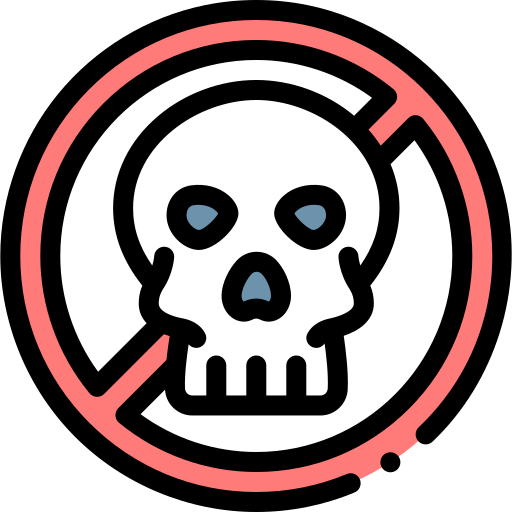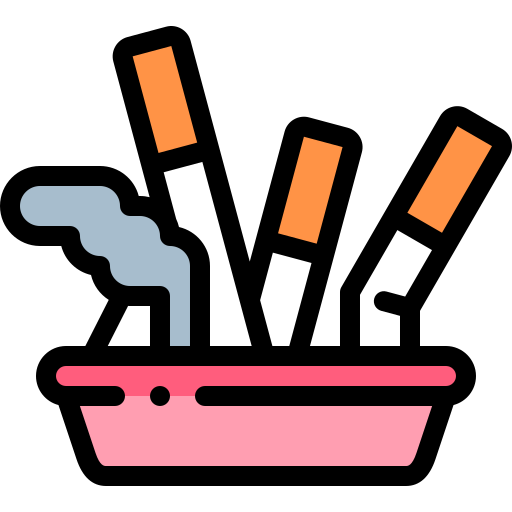Cigarette butts and Marine litter
Issues and solutions to smoking related litter
Smoking related litter is among the top litter items found in Ireland and worldwide and Clean Coasts has worked with staff, experts and volunteer groups to develop a campaign to highlight and raise awareness and reduce the devastating impact that cigarette butts and smoking related litter has on our oceans around the world.
Cigarette Butts: The Issue

Cigarette butts are the most discarded waste item worldwide, accounting for approximately 766.6 million kilograms of toxic trash each year, equivalent in weight to 177,895 endangered African elephants (Source).
Each year, roughly 4.5 trillion cigarette filters pollute our oceans, rivers, city sidewalks, parks, soil and beaches and even inhibit the germination and growth of plants. (Source)
Research published by the Department of the Environment show that 48.4% of all littering in Ireland is made up of cigarette waste (Source)
Data collected during the Big Beach Clean weekends over the years show that cigarette butts were the top marine litter item found on Irish beaches. Since 2019, during the Big Beach Clean weekends alone, Clean Coasts volunteers removed 22,718 cigarette butts from the Irish coast. According to research, one cigarette butt can contaminate up to 1000 litres of ocean water. By removing 22,700 cigarette butts from Irish Coasts, Clean Coasts volunteers have effectively conserved 22,718,000 litres of Irish waters, which equates to just over 9 Olympic sized swimming pools!

The impacts of cigarette butts
While most of a cigarette’s innards and paper wrapping disintegrate when smoked, not everything gets burned.

Cigarette filters are made of a plastic called cellulose acetate, which do not biodegrade and can remain in the environment for very long periods of time in the form of microplastics. When ingested, the hazardous chemicals in microplastics cause long-term mortality in marine life, including birds, fish, mammals, plants and reptiles (Source).
These types of plastic filters are estimated to be the component in 90% of commercial cigarettes (Source)
How does this impact our ocean and marine life?
Litter

Cigarette butts littered each year enough to reach Saturn and back (Source).
Used cigarette butts may take over a decade to decompose and continue to be toxic during this time (Source).
When littered in an aquatic environment, due to their porous structure and consequent low density, filters can be transported over long distances until they become saturated with water and begin to sink (Source).
Microplastics

Littered cigarette butts are a major contributor of microplastic contamination with each cigarette filter contains approximately 15,000 microplastic fibers and these can be shed at a rate of around 100 microplastic fibres per day into water (Source).
Microfibres from cigarette butts are an important source of microplastics and might explain the high concentration of artificial polymers that have been found in the deep-sea sediments (Source).
Those microfibers from cigarette filters can have toxic effects on organisms (Source) with the cigarette buts amounting to an estimated 0.3 million tons of microfibers released per year.
Toxic elements

According to research, just one cigarette butt per litre of water leaches enough toxins to kill half the freshwater or saltwater fish exposed to it (Source).
Over 35 studies have examined the toxicity of cigarette butts, but many organisms and habitats have not been tested. Two-thirds of studies are on aquatic organisms, and lethal effects were common. Research on the impacts on terrestrial life is lagging behind. Cigarette butts can affect the growth, behaviour, and reproductive output of individual organisms in all three habitats, but research on wider effects on biodiversity and ecosystem functioning is lacking (Source).
Vaping litter
As vaping user numbers increase, it is important to know how to dispose of used vapes responsibly. There are at least 200,000 vapers in Ireland, and our research tells us 66% of vapers in Ireland do not dispose of their vapes properly. (Source)
Vapes are made up of a number of materials, including plastic, rubber, and metal (Source). This means that they can’t break down naturally and persist in our environments for a significant period of time. Cigarette-related items, including vapes make up almost half of all litter pollution in Ireland (Source).
1.3 million single-use vapes are thrown away every week. As each vape contains a battery, this means that 10 tonnes of lithium are discarded annually, the equivalent of the batteries that can be found in 1,200 electric vehicles (Source)
Recycling batteries supports climate action and is good for the environment as it keeps them out of landfill, where heavy metals may leak into the ground, causing soil and water pollution.

How to recycle vapes and e-cigarettes?
Vape and e-cigarette batteries need to be recycled properly and should not be placed in a household waste bin. If you can remove the battery from your vape, take it out and recycle it separately. If you cannot remove the battery, recycle the whole item. Please ensure the liquid tank is removed prior to being placed in the ERP Battery collection box.
There are many options for recycling your used vapes or e-cigarettes:
- Used vapes and e-cigarettes can be returned to the store from which you bought them. Retailers are obliged to take back disposable, single-use, rechargeable vape and/or e-cigarette devices on a one-for-one, like-for-like basis in-store or on delivery
- They can be brought to a WEEE dropoff recycling point or Civic Amenity Site, check the waste services locator on this site.
- European Recycling Platform (ERP) ERP Ireland also offers free recycling of these devices through our battery collection network. ERP battery recycling boxes are located at your local supermarket or recycling centre. Battery boxes area located in most newsagents, supermarkets, electrical retailers and Local Authority Recycling Centres/Civic Amenity Sites.




